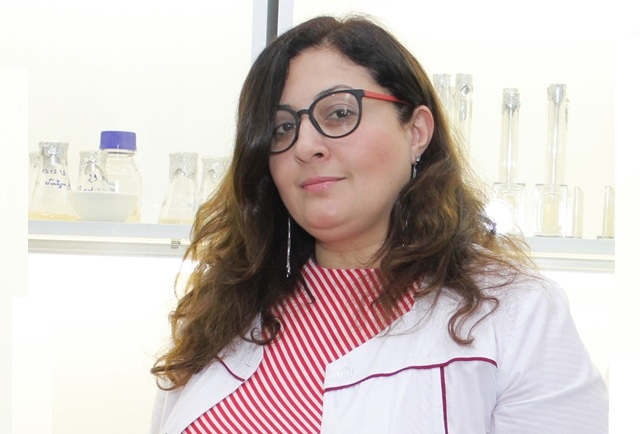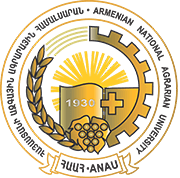
Zara Harutyunyan
Candidate of Sciences
Head
Contacts
- 74 Teryan Str., 0009, Yerevan, RA
I Building, - (+37494) 664461
[email protected]
History and Objectives
The Biological Research Laboratory of Armenian National Agrarian University was established in framework of long-term program financed by biotechnological laboratory of agriculture, food safety and environment protection of ANAU (TEMPUS) and Norwegian Center for International Cooperation and Education (SiU) with Europe 2016 CPEA-LT-2016/10092 in framework of “Norway-Armenia Cooperation in Plant Molecular Biology and Biotechnology for development of agriculture” in 2018.
The establishment of the laboratory was conditioned by modern biological researches on plant biotechnology and molecular biology in the field of agriculture, which is crucial for research on major issues aimed at improving the quality of life and standards. Establishment of the laboratory was also conditioned by the need for qualified personnel for the field.
Scientific researches are focused on ex situ studies, preservation, selection and cellular activity mechanisms of plants. Studies are conducted on genetic, cellular, tissue and organ levels.
Methods of biotechnology:
- adventitious sprout proliferation,
- apical meristem method,
- methods for somatic embryogenesis and somatic variation,
- calcium accumulation method,
- microclonal reproduction.
Methods of molecular genetic research
- Disconnection of DNA by CTAB,
- PCR (Polymerase Chain Reaction (classical and real-time),
- Horizontal gel electrophoresis,
- Spectrophotometric measurements.
RESEARCH PROJECTS
“Maintenance and development of scientific center” biological research laboratory was established in framework of “Project for maintenance and development of internal structure of scientific and scientific-technical activities” 2018-2019.
In framework of the project studies on crops conserved with technique in vitro, aiming to receive regenerate crops using calcium method and somatic embryogenesis. Morphogenetic potential of various explants and the effect of phytohormones on the growth of callus and potential of regenerate are being determined. In vitro conserved (virus-free) planting material is obtained by apical meristem method. In vitro method of microbreeding is being developed for every genotype. Polymerase chain reaction of tomato is being carried out using relevant DNA markers. Since 2017 Eurasia 2016 CPEA-LT-2016/10092 “Norway-Armenia Cooperation program in the field of plant molecular biology and biotechnologies aiming at developing agriculture” long term project has been launched. The main focus of the program is to promote active involvement of students in research, teaching and training activities.
The project implements pilot scientific programs with the active participation of students
- Possibilities and practices of investing wild blueberries in agriculture (Vaccinium uliginosum L., Vaccinium myrtillus L․),
- Wild strawberries as a selective starting material (Fragaria vesca L.),
- The possibilities of introducing some species of flowers into the cultivars belonging to the subclass Crocus (Iris iberica subsp. Elegantissima, Tulipa sosnovskyi).
Theoretical and practical trainings are conducted on plant biotechnology and molecular biology, as well as professional English lessons are provided.



